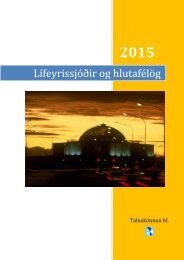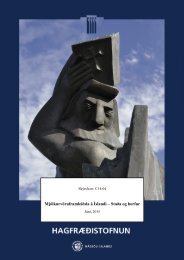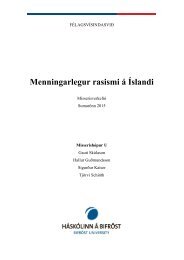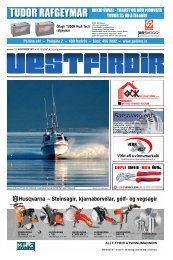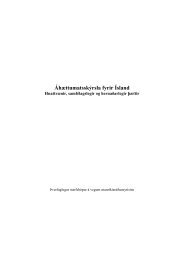You also want an ePaper? Increase the reach of your titles
YUMPU automatically turns print PDFs into web optimized ePapers that Google loves.
WORLD REPORT 2016<br />
HUMAN RIGHTS WATCH<br />
ber 2014, when about 20 uniformed police handcuffed and hit him with batons<br />
until he lost consciousness. When Kennedy Masiye, his lawyer, tried to intervene,<br />
the police beat him up, breaking his arm.<br />
Zimbabwe authorities denied any involvement in Dzamara’s abduction, but state<br />
authorities have not conducted any meaningful investigation. When Dzamara’s<br />
wife, Sheffra Dzamara, approached the high court in Harare to compel state authorities<br />
to search for her husband, government officials failed to comply with<br />
the court order to report on the investigation’s progress.<br />
On April 25, activists organized a car procession to raise awareness about Dzamara’s<br />
case. Police arrested 11 activists and detained them for six hours, then released<br />
them without charge.<br />
On January 27, 2015, five community leaders representing 20,000 Tokwe-Mukorsi<br />
dam flood victims (see below) were sentenced to five years in prison for public<br />
violence after they organized a demonstration to protest the government’s failure<br />
to compensate them for the loss of their land and the dire conditions in<br />
which they lived. Authorities had arrested the community leaders in August<br />
2014, including Mike Mudyanembwa, the chair of the victims’ Chingwizi Camp<br />
Committee, who did not participate in the demonstration. Their lawyers alleged<br />
that they were tortured in prison.<br />
On July 24, police wrongfully arrested three activists—Edgar Gweshe, Charles<br />
Nyoni, and Don Makuwaza—who they said had taken photographs at Harare Remand<br />
Prison, which is prohibited under the Protected Places and Areas Act. On<br />
July 25, police arrested three more activists—Mfundo Mlilo, Nixon Nyikadzino,<br />
and Dirk Frey—on trumped-up charges of organizing a meeting outside Harare<br />
Remand Prison in violation of the Public Order and Security Act (POSA).<br />
Government Opponents and Other Critics<br />
Police and state security agents targeted perceived govenrment opponents and<br />
critics. They threatened, kept under surveillance, and arbitrarily arrested supporters<br />
of former Vice President Joyce Mujuru after she was removed from her<br />
post and considered forming an opposition party.<br />
In November 2014, police arrested and detained former leader of the war veterans<br />
and key Mujuru supporter, Jabulani Sibanda, on charges of undermining Mu-<br />
gabe’s authority. Sibanda was released on bail after five days in detention. He<br />
said he received death threats from state security agents after he was released<br />
from detention. In February, April, and June 2015, police arrested and briefly detained<br />
Temba Mliswa, another expelled senior ZANU-PF official, on spurious<br />
charges.<br />
On July 14, police beat and arrested 16 street vendors, including Sten Zvorwadza,<br />
Samuel Wadzanai Mangoma, and Lucy Makunde, leaders of the National Vendors<br />
Union of Zimbabwe (NAVUZ), and brought trumped-up charges of inciting<br />
public violence against them. The arrests were part of a violent crackdown on unlicensed<br />
street vendors—mostly women living in extreme poverty—in the capital,<br />
Harare, during a government “clean-up” campaign. The crackdown was marked<br />
by beatings, destruction of goods, and arbitrary arrests.<br />
Internally Displaced Persons<br />
The government ignored the plight of the 20,000 people who fled their homes<br />
because of massive flooding at Zimbabwe’s Tokwe-Mukorsi dam in February<br />
2014. It coerced the flood victims to resettle onto one-hectare plots at a farm<br />
with close links to the ZANU-PF party, without paying them fair compensation.<br />
The flood victims lacked adequate shelter, safe drinking water, and access to<br />
sanitation and health services.<br />
According to the governmental Zimbabwe Human Rights Commission (ZHRC), the<br />
flooding “was not natural, but [a] man-made disaster” and could have been<br />
avoided. It urged the government to protect the basic rights of all the flood victims.<br />
In July 2015, the flood victims sent a desperate plea to Mugabe to provide<br />
them with basic services, adequate compensation for the loss of their land, and<br />
full consultations about their future resettlement. He did not respond.<br />
Rule of Law<br />
Mugabe’s government continued to ignore human rights provisions in the country’s<br />
2013 constitution, neither enacting laws to put the constitution into effect<br />
nor amending existing laws to bring them in line with the constitution and Zimbabwe’s<br />
international and regional human rights obligations. The government<br />
has yet to repeal or amend the Access to Information and Protection of Privacy<br />
656<br />
657





